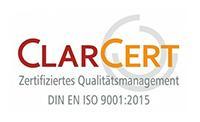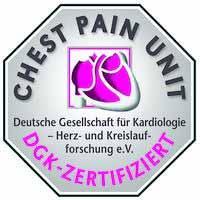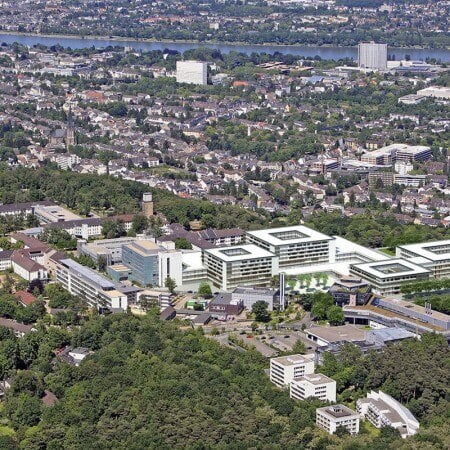Pulmonary arterial hypertension is included in a group of pulmonary vascular diseases whose clinical picture is associated with a progressive increase in pulmonary vascular resistance. Without proper care, in the period of exacerbation, it leads to the death of the patient due to the development of heart failure. According to the classification, there are 2 types of hypertension – primary and secondary, with their own division.
The disease can be caused by medication or external toxic effects, portal hypertension, thrombosis of pulmonary veins and arteries, congenital heart diseases, schistosomiasis, and often has a genetic hereditary character.
Content
- Pulmonary hypertension overview
- What causes pulmonary hypertension?
- How are pulmonary hypertension and acute heart failure connected?
- Symptoms of pulmonary hypertension and acute heart failure
- How is diagnosis of pulmonary hypertension with acute heart failure carried out?
- Treatment
- Treatment in European hospitals
- The cost of treatment in European hospitals
- Treatment in European hospitals with Booking Health
Pulmonary hypertension overview
Pulmonary hypertension is a pathological condition in which the resting pressure in the pulmonary artery trunk is elevated. This disease can be both independent (primary) and secondary. The primary form of pulmonary hypertension is fairly rare and occurs with a frequency of up to 1% of the total number of patients suffering from this disease. Most often, arterial hypertension is a complication that has developed due to diseases of the heart, blood vessels, and other organs and systems.
Some scientists suggest the definition of four groups of patients with cardiopulmonary circulatory disorders:
- The first group includes patients who, in the presence of arterial hypertension, can be physically active without any unpleasant cardiovascular symptoms.
- The second group includes patients, for whom physical activity is difficult and leads to shortness of breath, dizziness, and chest pain. At the same time, there is no discomfort at rest, and the heart is not disturbed.
- The third group includes patients who do not tolerate even minor physical activity, including slow walking.
- The fourth group of patients suffering from pulmonary hypertension feels the lack of air, lethargy, and weakness.
What causes pulmonary hypertension?
Along with lung pathology, the onset of the disease is usually due to recurrent clogging happening in the vessels. Pulmonary hypertension is a frequent consequence of coronary heart disease, and other heart diseases. Besides, increased pulmonary artery pressure is a major complication often being lethal for patients who refused from surgical treatment. However, pulmonary hypertension can also develop in people previously operated on for management of the condition.
When diagnostic examination finds no cause for the development of pulmonary hypertension, idiopathic pulmonary hypertension is diagnosed. Idiopathic pulmonary hypertension is an independent disease in contrast to secondary pulmonary hypertension, which occurs as a complication of various circulatory and respiratory diseases.
How are pulmonary hypertension and acute heart failure connected?
It is quite difficult to say what suffers more in such a disease – heart or lungs. This problem in cardiac surgery has always been there. However, the treatment of heart conditions has now come to the forefront.
Pulmonary hypertension and heart failure might seem like two different diseases, however, they may present with similar manifestations. Moreover, different forms of heart failure are distinguished. The prevalence of one form or another directly correlates to the presence of lung pathology or is aggravated by it.
Unfortunately, many people with both lung pathology and heart failure do not realize this because the symptoms may be similar to one another, and the focus of treatment may be on one disease, but not on the other. The combination (comorbidity) of these pathologies is very common. Both diseases can cause shortness of breath, exercise intolerance, and fatigue. While seemingly independently coexisting, they share some common risk factors and symptoms, including cigarette smoking, advanced age, and systemic inflammation. Both heart failure and pulmonary hypertension progress over time, which should not be ignored because it worsens overall well-being and makes treatment more difficult.
Heart failure can also be chronic or acute. Chronic heart failure is much more prevalent than acute heart failure, which occurs rapidly and unexpectedly. Acute heart failure can occur suddenly because of a cardiovascular accident and/or decompensated heart failure.
Almost all patients with idiopathic pulmonary hypertension have severe right ventricular dilatation, but congestive right ventricular heart failure is less common. Peripheral edema and enlarged liver develop when the right ventricular end-diastolic volume exceeds the volume of the left ventricle by more than 1,5 times (the right ventricular cavity is normally smaller than the left one). This definition can be used to diagnose heart failure in almost every patient with chronic respiratory disease because almost every patient has some degree of impaired gas exchange, which causes compensatory hyperfunction of the heart.
By definition, if there is hypertrophy and even a slight enlargement of the right ventricular cavity, one has the right to indicate heart failure in the diagnosis. In fact, with lung disease, the right ventricle is in a state of hyperfunction (compensatory increase in cardiac output in response to hypoxemia and resistance load due to pulmonary hypertension). Therefore, the vast majority of patients have right ventricular myocardial hypertrophy. If it is not detected by ultrasound, it is due to insufficient sensitivity of the echocardiography method. As there is heart hyperfunction, hypertrophy is an obligatory consequence, if not at macroscopic, then at the ultrastructural level.
Symptoms of pulmonary hypertension and acute heart failure
At the initial stages, the disease is asymptomatic. The first visible signs appear if the blood pressure in the vessels reaches values twice as high as the commonly accepted norm. With the development of pulmonary hypertension, the symptoms intensify, including:
- Disturbed respiratory rate, feeling of the lack of air.
- General fatigue and dizziness.
- Rapid pulse.
- Reflexive cough.
- Fainting.
- Feeling of tightness in the retrosternal space.
- Excessive fluid buildup in the shins and feet.
- Pain in the liver area.
- Hoarseness of voice.
Such manifestations are often caused by a considerable narrowing of the blood vessels, which walls thicken and shape is changed.
The widespread complaint of patients with pulmonary hypertension progressing to the stage of acute heart failure is the occurrence of compressive and pressing pain in the chest, which sometimes localize behind the sternum and irradiate to the left. Often the pain attacks are preceded by bronchospasm. The pain is often accompanied by the intensification of dyspnea. Pathogenesis of chest pain is rather complicated and is explained by a combination of several factors:
- The development of metabolic disorders in the myocardium due to hypoxia (oxygen starvation) and infectious-toxic effects.
- Functional overload of the myocardium.
- Some reduction of blood flow due to increased end-diastolic pressure in the right ventricular cavity.
How is diagnosis of pulmonary hypertension with acute heart failure carried out?
An echo scan is usually conducted when a disease is suspected. When an increase in pressure is detected, specialists prescribe additional examinations to identify other pathologies that potentially may be the root cause of the disease. Targeted therapy for the initial disease can alleviate the patient's condition, or at least avoid its exacerbation.
In a situation of progressive pulmonary hypertension, and dysfunction of the right heart that activates the condition of heart failure can be seen.
A patient with suspected pulmonary hypertension should be referred to a medical center whose staff is experienced in diagnosing and treating this type of disease. Specialists (a pulmonologist together with a cardiologist) will perform several tests to discover the cause of pulmonary hypertension: HIV testing, blood tests for autoimmune diseases, liver function testing, expanded pulmonary function tests, 6-minute walk test, lung CT with contrast agent injection, diagnostic lung imaging, sleep study, and many others.
If the final result of all examinations is negative, the diagnosis of primary or idiopathic arterial hypertension is made. In this case, right heart catheterization is performed. The purpose of catheterization is to confirm the diagnosis, assess diagnostic markers, and verify the presence of pulmonary artery dilation in response to drug administration (vasoreactivity testing).
Treatment
For relaxing the vascular layer, decreasing blood viscosity, and improving blood circulation, conventional therapy uses anticoagulants (to reduce blood viscosity and prevent blood clotting), vasodilators (to expand and reduce the pressure in the vessels), and prostacyclin drugs (to improve microcirculation).
Independently occurring hypertension is especially hard to treat. Since the reasons for such hypertension are virtually unknown, its treatment is down to the elimination of its clinical manifestation. The treatment of pathology caused by other health conditions should begin with the therapy for the disease that caused it.
With congenital and acquired heart defects, pulmonary artery thromboembolism, and the case of ineffectiveness of conservative treatment of pulmonary hypertension, surgical treatment is applied.
In addition, to minimize the symptoms of pulmonary hypertension and thus alleviate the condition, patients are advised to limit physical activity, treat lung infections in time, and undergo vaccinations. Treatment of pulmonary hypertension is complex and not always successful.
An individual selection of the level of physical activity for patients with pulmonary hypertension and acute heart failure is advisable. It should not cause severe dyspnea, dizziness, syncope, or chest pain. Flu and pneumococcal vaccination should be recommended for all patients with the condition. During air travel, due to the high risk of vasoconstriction and due to low oxygen content in the blood, it is necessary to provide oxygen for the patient.
In case of anemia of any degree occurring with a heart failure condition, correction of hemoglobin level is necessary, since those with pulmonary hypertension are highly sensitive to its decrease. Prolonged oxygen therapy is indicated when oxygen saturation decreases less than 90%. It is most effective in patients with pulmonary hypertension due to lung diseases. In patients with Eisenmenger syndrome, studies suggest that oxygen therapy has no effect on hematologic indices, quality of life, and survival.
In decompensated right ventricular failure, diuretic therapy is prescribed in accordance with the regimen of treatment for heart failure. Kidney function and blood contents should be monitored regularly to adjust the diuretics intake promptly.
Treatment in European hospitals
Therapy for PH and heart failure in Europe is conducted only after it is known what caused the disease since a highly accurate diagnosis is the key to the effectiveness of tactics for its management. Pulmonologists working at European hospitals have practiced and successfully introduced into clinical practice many unique methods that allow identifying and eliminating pathology in combination with the disorders that have activated it. Medical institutions in Europe are also actively using new experimental approaches, which are potentially highly effective.
The best European hospitals for the treatment of PH and acute heart failure are:
- University Hospital Ulm, Germany.
- Charite University Hospital Berlin, Germany.
- University Hospital Heidelberg, Germany.
- University Hospital RWTH Aachen, Germany.
The cost of treatment in European hospitals
Previously, the diagnosed PH and heart failure, alone and in combination, were perceived as a verdict. In recent years, there has been a considerable breakthrough concerning the different approaches to disease control appearing in Europe. It is now possible mostly thanks to the emergence of novel efficient techniques that allow controlling its aggravation, which have influenced a major enhancement in the recovery statistics of people with even severe progression of the disease.
There are several forms of pulmonary hypertension, including the one with acute heart failure, each of which has a different course and severity of symptoms. Accordingly, the treatment protocol and cost of treatment vary. But overall, the prices for medical services in Europe are considerably lower than in medical centers in the United States, for instance. This is due to the active development of the medical tourism industry in Europe. Therefore, the cost of treatment of pulmonary hypertension in European hospitals is about 30% lower.
The prices for diagnostics of pulmonary hypertension with right heart catheterization start at 2,287 EUR, while the prices for cardiac rehabilitation start at 566 EUR.
You can get a free consultation regarding the cost of treatment of pulmonary hypertension and acute heart failure via contacting Booking Health.
Treatment in European hospitals with Booking Health
With Booking Health, you do not need to worry about where to undergo treatment, what language to use to communicate with your physician, how to shorten your stay in a foreign country and other influential aspects.
If you want to treat pulmonary hypertension and acute heart failure without intermediaries, we can help you go directly to the hospital. Appointments to the leading specialists in pulmonary and vascular diseases, surgeries, and diagnostic rooms are booked weeks in advance, so be prepared for your stay abroad may last for some time. The cost of medical services is paid at hospital prices.
With Booking Health, your task is to fly to the host airport. Advances in foreign medicine await you on a pre-agreed plan. Booking Health cares about your comfortable stay, resolving organizational issues, and advocating your interests throughout your trip.
Please fill in the request form on the Booking Health website, so that we could contact you.
Authors:
This article was edited by medical experts, board-certified doctors Dr. Nadezhda Ivanisova, and Dr. Bohdan Mykhalniuk. For the treatment of the conditions referred to in the article, you must consult a doctor; the information in the article is not intended for self-medication!
Our editorial policy, which details our commitment to accuracy and transparency, is available here. Click this link to review our policies.




















